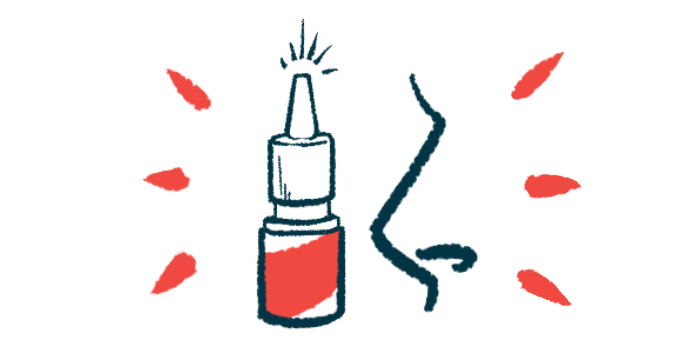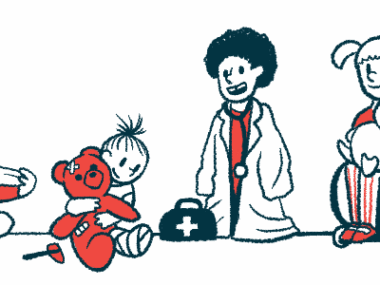Clinical trial being planned to test nasal spray using oxytocin for PWS
Tonix already has FDA green light; study of TNX-2900 expected next year
Written by |

Tonix Pharmaceuticals is planning the launch of a Phase 2 clinical trial to test its TNX-2900 nasal spray — containing a specialized form of oxytocin — in children and teens with Prader-Willi syndrome (PWS).
The company has already received clearance from the U.S. Food and Drug Administration (FDA) to move forward with the trial. The U.S. study, expected to begin in 2026, will assess the effects of the experimental therapy against a placebo for treating insatiable hunger, or hyperphagia, and other PWS-related abnormal behaviors.
“We are pleased to advance TNX-2900 into a Phase 2 trial for PWS, a condition with unmet needs for new medicines with activity and tolerability,” Seth Lederman, MD, CEO of Tonix, said in a company press release.
Oxytocin, a hormone whose function seems to be deficient in people with PWS, plays a role in behaviors related to emotions and appetite. The hormone version delivered in TNX-2900 is potentiated, or designed to bind more strongly and selectively to the oxytocin receptor protein than both the naturally occurring oxytocin and other lab-made versions, according to Tonix.
“By addressing limitations of traditional oxytocin delivery, we believe TNX-2900 has the potential to become an FDA-approved therapy targeting the oxytocin receptor in PWS and provide meaningful benefit for patients and families living with this rare disorder,” Lederman said.
In people with PWS, the brain’s oxytocin production is faulty and believed to contribute to PWS symptoms such as emotional and behavioral problems, sleep disorders, and hyperphagia.
“Families caring for children with PWS face significant challenges and burdens,” Lederman said. “Among them is hyperphagia which drives persistent food-seeking behaviors that require constant supervision and often result in obesity and serious medical complications.”
Boosting the brain’s oxytocin supply is a potential therapeutic strategy for normalizing feeding behaviors and reducing hyperphagia in children and teens with PWS.
Other oxytocin-based therapies administered via the nose have already been tested in clinical trials for PWS, but the results have proven lacking thus far.
One example is ACP-101, an experimental nasal spray of a lab-made version of oxytocin called carbetocin. After a long clinical development process, the Acadia Pharmaceuticals therapy earlier this year failed to meet the goals of a Phase 3 clinical trial (NCT06173531). Its development has been discontinued.
Trial testing oxytocin nasal spray to enroll patients ages 8 to 17.5
TNX-2900, also a nasal spray, delivers a potentiated form of oxytocin. The intranasal oxytocin technology behind TNX-2900 was licensed to Tonix by Inserm Transfert, the technology transfer arm of France’s National Institute of Health and Medical Research.
The upcoming Phase 2 trial will enroll children and adolescents with PWS. The participants — who can range in age from 8 to 17.5 years — will be randomly assigned to receive either one of three dose levels of TNX-2900 or a placebo for 12 weeks, or about three months.
The main goal is to measure changes in hyperphagia, while secondary goals will include safety measures. Changes in behavior, caregiver burden, and quality of life also will be assessed.
TNX-2900 has been granted both orphan drug and rare pediatric disease designations by the FDA for the treatment of PWS. Both statuses are intended to encourage the development of therapies for rare conditions.
Orphan drug designation provides financial incentives, regulatory support, and seven years of market exclusivity in the U.S. if a therapy is approved. Rare pediatric disease designation could make Tonix eligible for a transferable priority review voucher — an incentive that allows a company to accelerate FDA review of another therapy or sell the voucher to another drug maker.






